Diarrhoea in Cats: Common Causes and Solutions

By Evelyn Harcourt
november 19, 2024 - 1 min read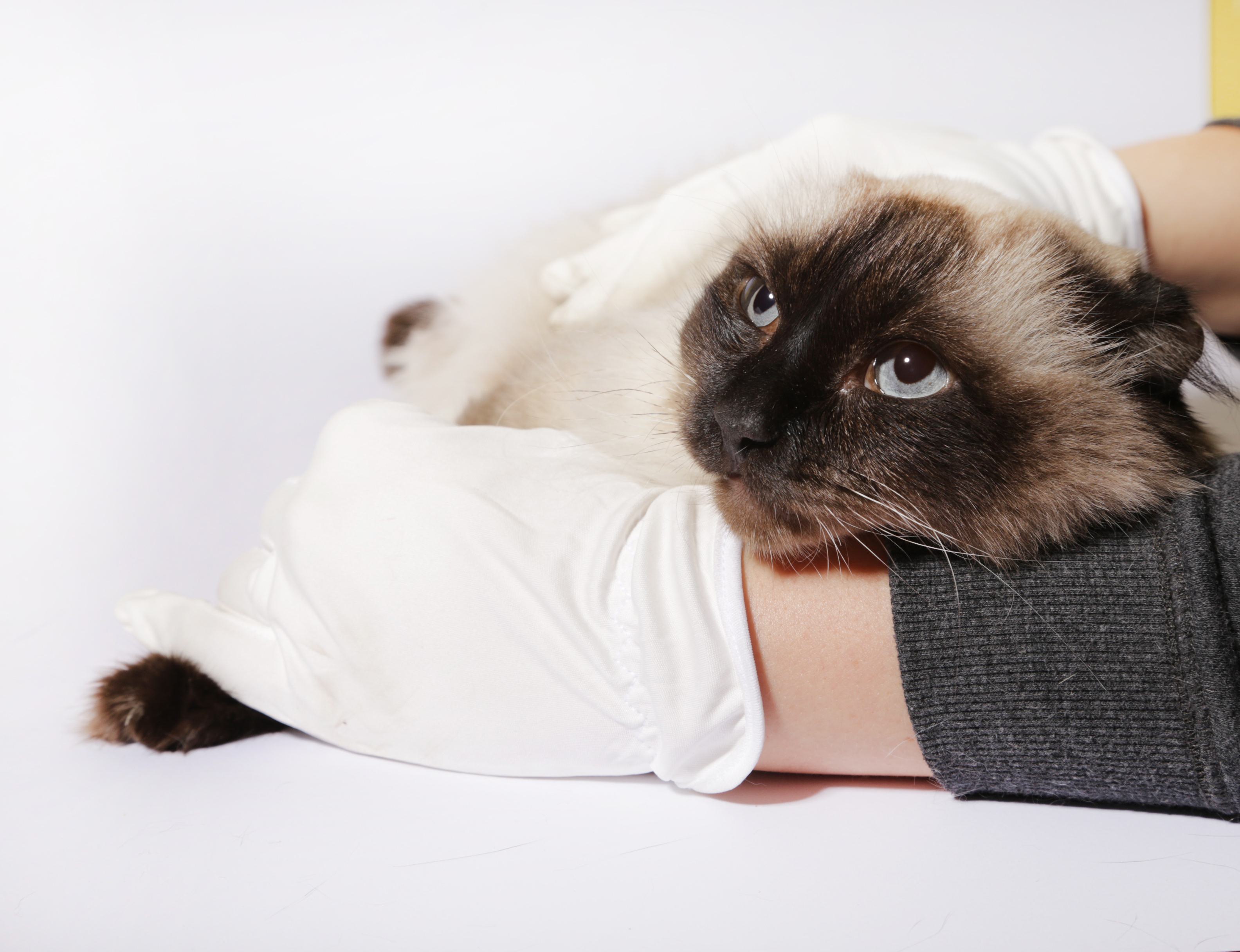
If you’ve noticed loose or watery stool in the litter tray, in your garden, or clumped around your cat’s back end, you may be wondering what’s going on. Diarrhoea is a very common issue in our feline friends and one that can affect them at any age.
This article explores why diarrhoea occurs and how it should be addressed. Many cases will be managed from home, and often veterinary intervention is not needed. Importantly, we discuss how to know when to see a vet.
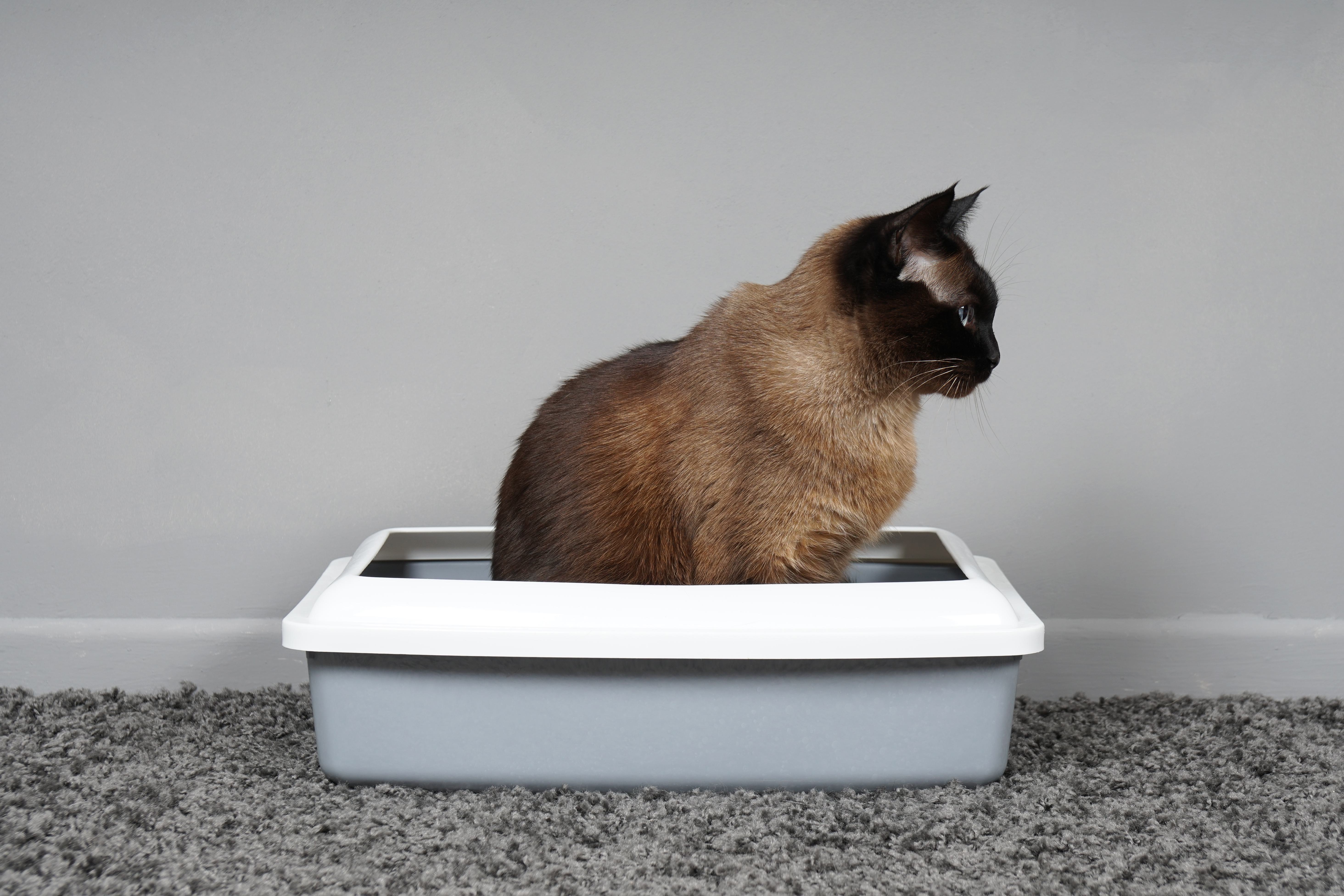
What Are the Common Causes of Diarrhoea in Cats?
We see diarrhoea for many reasons, and it is not always obvious why it occurs. Indeed, many owners never know why their cat has developed diarrhoea, and it will resolve by itself without any action on their part.
Some typical causes include:
Abrupt diet changes (changing to a new food without making a gradual transition)
Dietary indiscretion. This is when your cat eats something they shouldn’t, such as leftovers, rich human food, or dog food.
Viral infections such as FeLV or Panleukopaenia
Toxin ingestion
Bacterial infections like Salmonellosis or Campylobacteriosis
Organ disease such as liver failure or chronic kidney disease
Hormonal disorders, including hyperthyroidism and diabetes
Cancers, including intestinal lymphoma
Parasites, such as Giardia or Roundworms
Inflammatory Bowel Disease (IBD)
Food allergies or sensitivities. Cats can be allergic to any ingredient, but some of the top culprits include beef, fish, chicken, and dairy.
Stress or anxiety, particularly in nervous individuals.
Certain medications, such as antibiotics
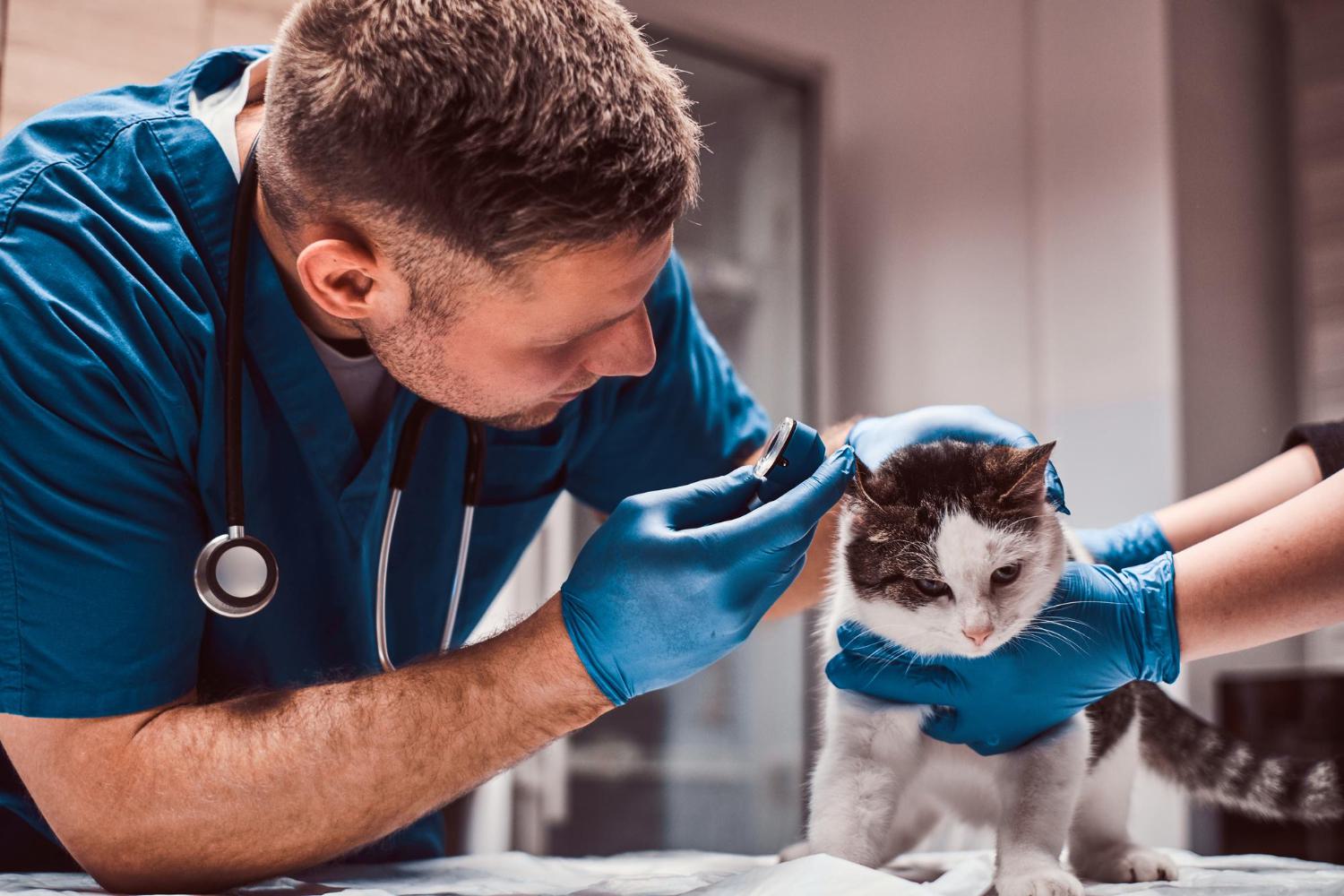
Could An Infection Be Causing My Cat’s Diarrhea?
Certainly, for some cats, the cause will be infectious. This is often the case when cats are around a lot of other cats, for example, in a cattery or re-homing centre. Gastric infections are also more commonly seen in raw-fed cats.
Some infections, particularly food poisoning, can be passed to humans. For this reason, it is always very important to practice good hand hygiene and to clear up any cat stool quickly and thoroughly.
Is Stress or Anxiety Affecting My Cat’s Digestion?
The digestive system is sensitive and can be knocked off kilter by many things. The cortisol released during stressful situations triggers the ‘fight or flight’ response.
It also creates inflammation within the gastrointestinal tract, causes bowel muscle contraction, and can create an imbalance in the gut microbiome (bacteria within the gut).
This is usually seen as a short-term effect, e.g., in cats who pass diarrhoea in their carrier when being transported to their vet. However, it can also be seen chronically in nervous individuals who suffer from regular loose stools.
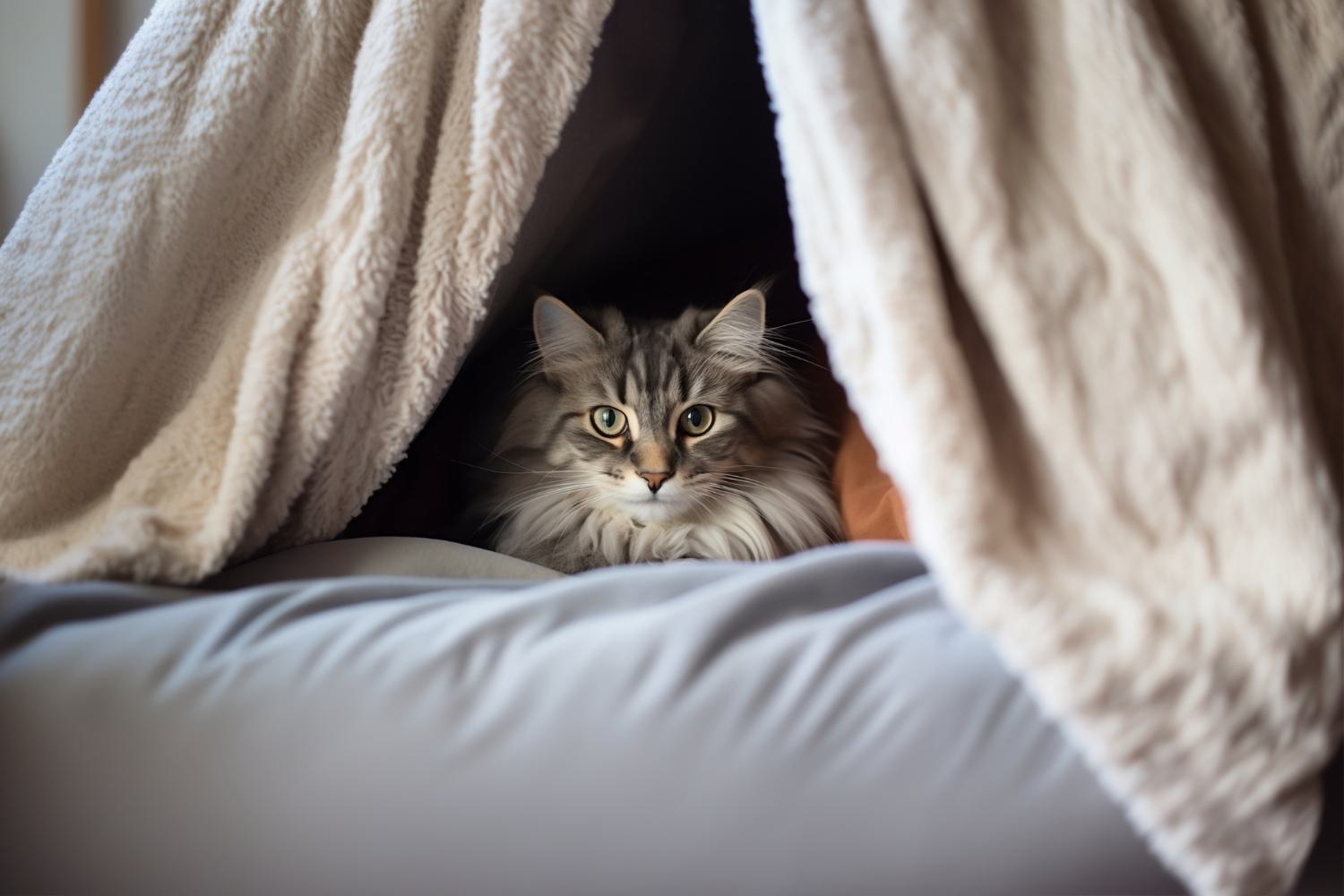
Could My Cat Have Ingested Something Toxic?
Cats are curious critters, and we always have to consider they may have eaten something they shouldn’t have. This is particularly true for those who have access to the outdoors. Depending on the toxin, there can be a range of symptoms, but vomiting and diarrhoea often occur.
If you do suspect your cat has ingested something toxic, don’t hesitate to contact your nearest vet clinic right away. If it is late at night or the weekend, this may mean contacting an emergency vet.
Symptoms for Diarrhoea in Cats
Those with diarrhoea will be passing stool that is poorly formed and can look like pâté,melted ice cream, or soup. They may have other signs including frequent stool passing, a bloated stomach, flatulence, and borborygmi (bubbling noises coming from their abdomen).
As these cats are losing excess fluid from their intestines, they may seem thirstier than usual. For those who are experiencing nausea or abdominal cramps, owners may notice they are off their food or have less energy,
How Can I Treat Diarrhea in My Cat?
If your cat is a healthy adult who is experiencing mild diarrhoea and is coping well, you can likely manage them from home.
If your cat seems unwell (low energy, off their food, vomiting), then they should be assessed by a vet. Similarly, if their diarrhoea persists longer than a day or two or if the stool contains blood, a veterinary assessment is wise.
What Dietary Adjustments Should I Consider?
It is sensible to offer a bland diet that is highly digestible. Some good options include boiled chicken, rice, white fish and egg. You can also give your cat a sensitivity or gastrointestinal food, prescribed by their vet.
Offering their meals little and often can help not to ‘overload’ their digestive system while it is inflamed. If you are going to be transitioning them on to a new food when better (for example, if you have a kitten), do so slowly over the course of 5 days.
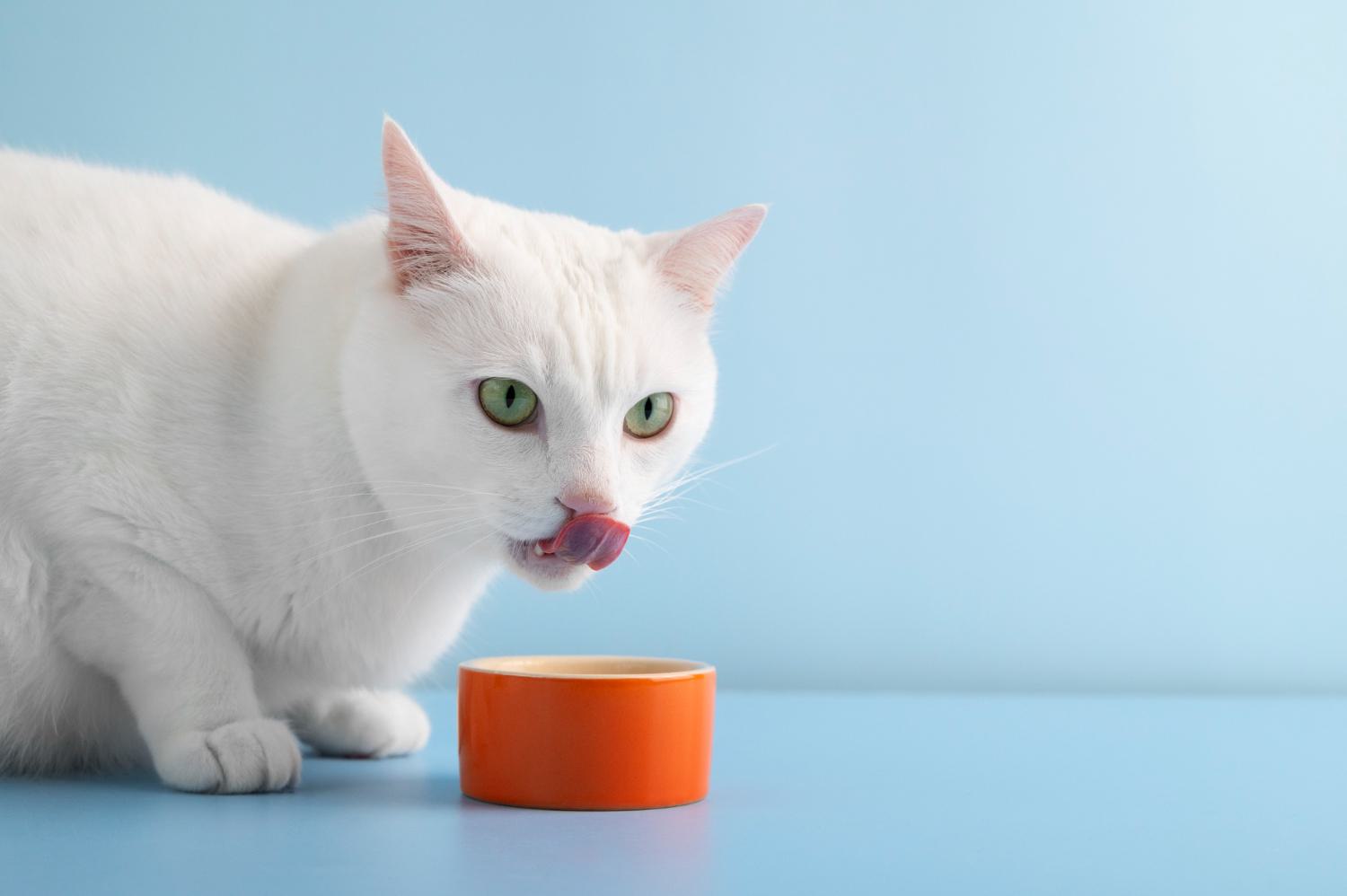
How Can I Ensure My Cat Stays Hydrated?
As well as water, you can maintain their hydration by offering rehydration sachets, bone broth, or cat soup. Milk should not be provided, as most cats are lactose intolerant, and milk generally leads to stomach upsets.
For those less interested in water, offering moving water from a cat fountain may encourage them to drink. You also have the option of adding water to meals and putting down several easily accessible water bowls.
Signs of dehydration include dry gums, reduced skin elasticity, sunken eyes, and lethargy. If you feel your cat could be dehydrated, don’t hesitate to contact their vet.
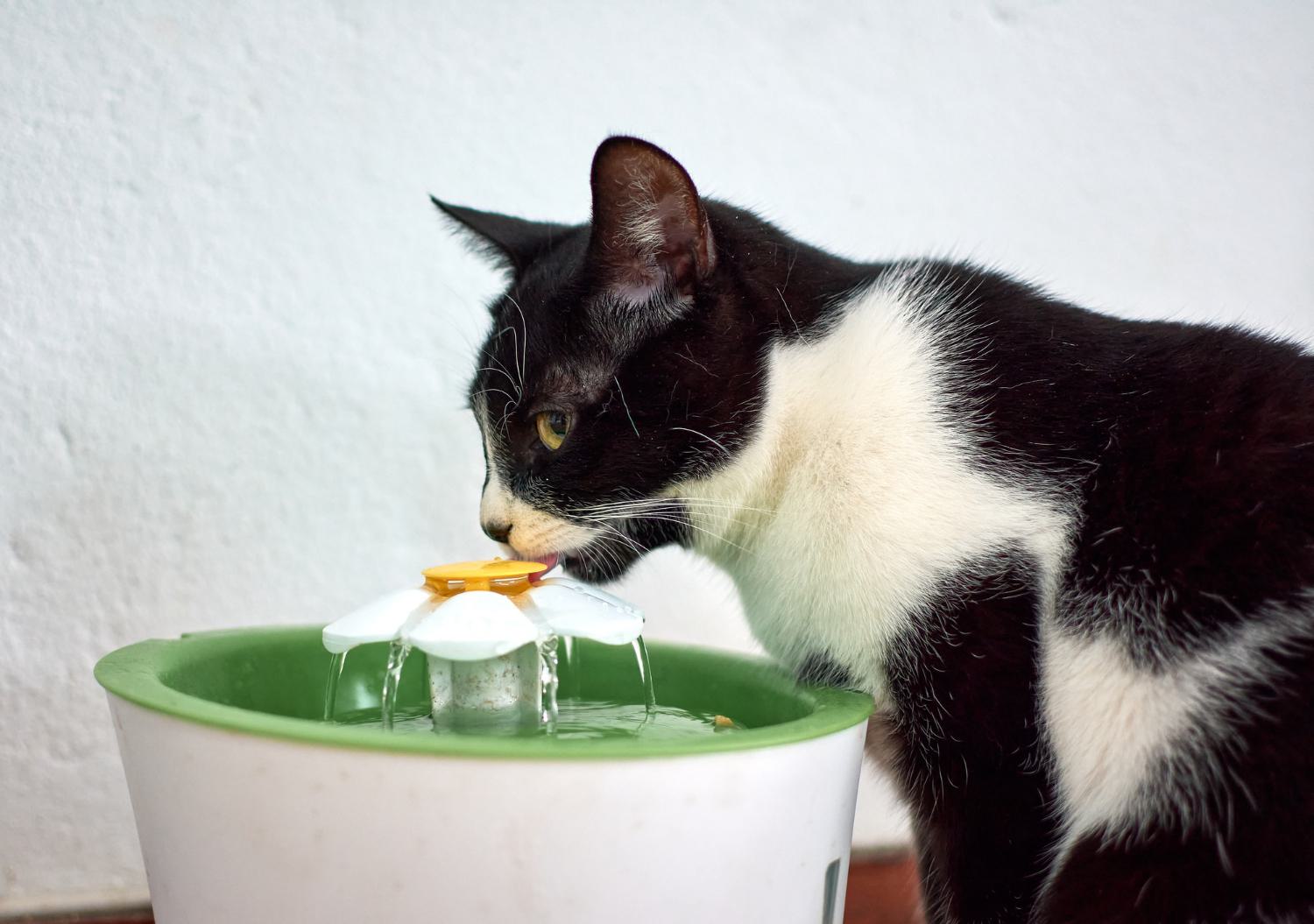
Are There Over-the-Counter Solutions?
Certain medications can help restore your cat’s stool to normal. These pastes and powders usually contain ingredients such as prebiotics, probiotics, kaolin, and pectin. They work to reduce fluid loss into the intestine and re-establish a healthy gut microbiome.
Fibre supplements can also be considered, particularly if the diarrhoea is a chronic issue or your cat’s diet is lacking in fibre.
How Can I Help Manage My Cat’s Stress?
When stomach upsets seem linked to anxiety or stress, it makes sense to try and help reduce stress. This can include things like keeping a consistent routine, ensuring your cat has plenty of hiding spaces within the home, and using calming aids such as a Feliway plug-in and natural calming supplements within the diet.
When Should I Consult a Vet?
In some instances, it is best to seek professional advice. This is true when the diarrhoea is persisting, or if you feel your cat is not coping well.
Your vet can perform diagnostics to determine what is going on (such as blood tests, stool analyses, and abdominal imaging) and provide any required medication, such as antibiotics or anti-inflammatories.
Your vet can also discuss the most appropriate diet for your pet, and get them up to date with their parasite prevention if needed.
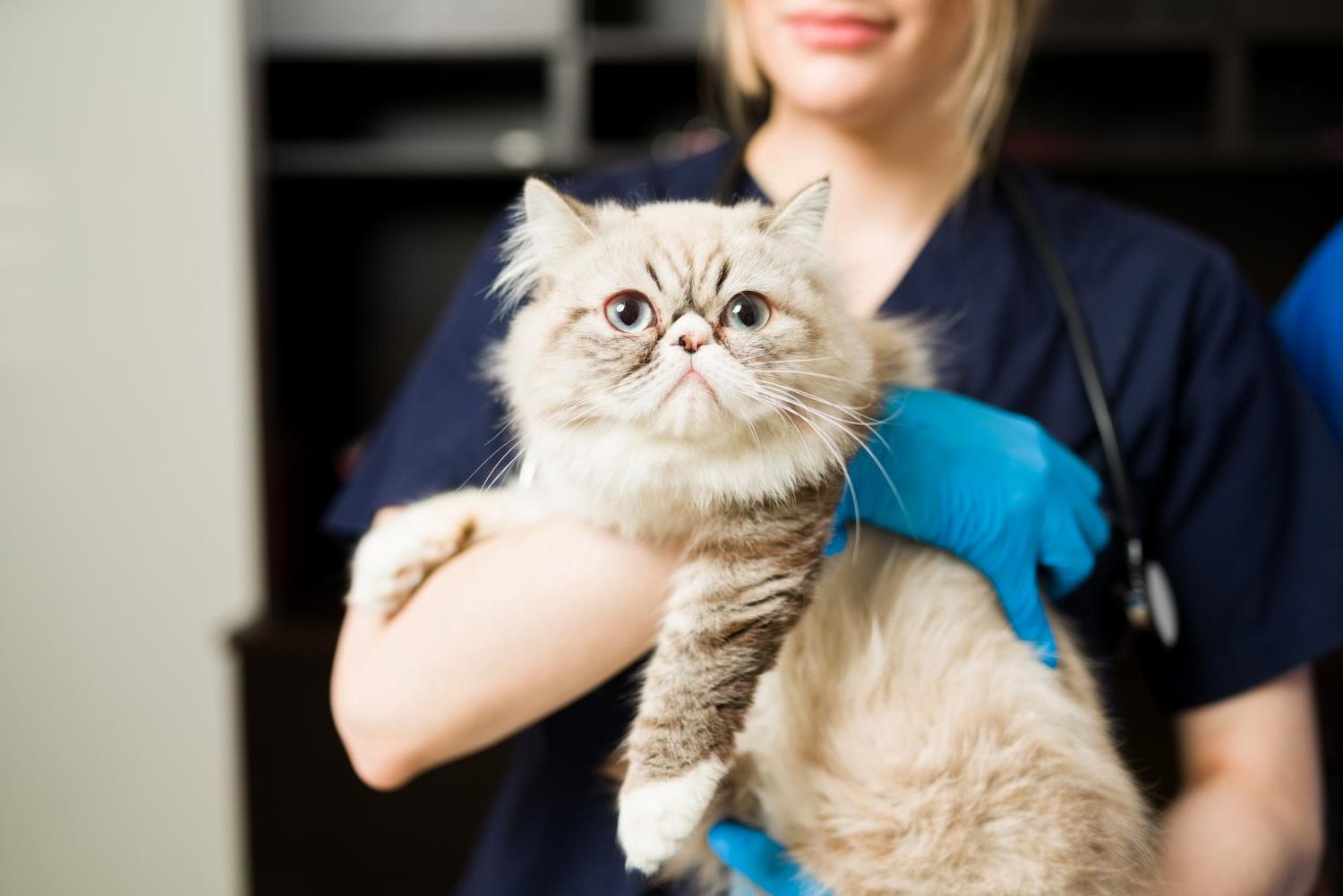
How Can I Prevent Future Episodes of Diarrhea in My Cat?
Not every case of diarrhoea can be prevented, but there are things you can do to help. This includes providing a consistent and appropriate diet, maintaining a calm home, ensuring your kitty is up to date with their vaccinations and parasite prevention, and trying to keep any human food or toxins out of reach.
Get More Advice On Diarrhoea in Cats
If you need further advice or have concerns for your cat, please don’t hesitate to get in touch. Contact us today, and we will be more than happy to help with your cat’s diarrhoea.
Continue reading

Is Excessive Drooling An Emergency for Dogs?
Excessive drooling in dogs: causes, red flags, and when to call the vet.
Read article
Cat Tail Shaking: Is it an Emergency?
Learn whether your cat's tail shaking is normal, a warning, or urgent.
Read article
Eclampsia in Dogs: Symptoms, Causes and Treatments
Spot eclampsia fast, symptoms, causes, and vet treatments to protect mum and pups.
Read article